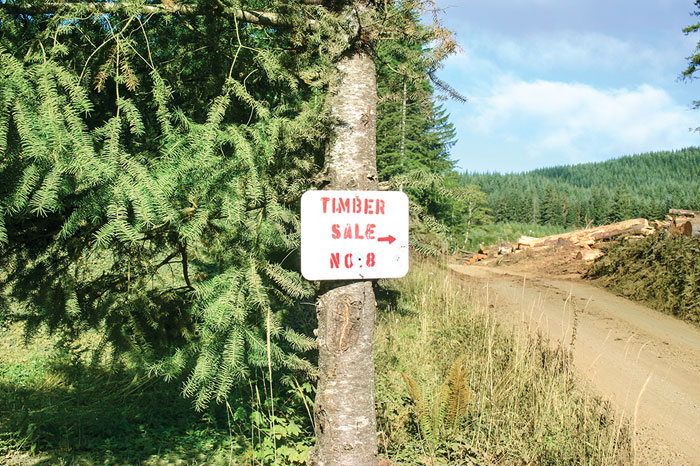An Oregon district judge has refused to dismiss a 2016 lawsuit filed by counties with state forests within their borders that claimed state officials have refused to maximize timber revenues from lands that counties donated to the state years ago. Attorneys for the state had claimed “sovereign immunity” in the matter—a doctrine that county governments can’t sue the state government—and while the judge initially allowed it as a possible defense, his most recent ruling says that in this case, counties can sue the state to enforce their contract rights.
At issue are timber sale revenues from state lands that were initially donated to the state decades ago, along with accompanying legislation that the lands should be managed for the “greatest permanent value” and revenues shared with the counties. According to the suit, state forestry officials began reducing timber revenues in favor of recreational and environmental protection priorities 20 years ago via an internal policy change. As a result, the counties believe they have been shortchanged and are asking the state for more than $1 billion in revenues.
The judge’s ruling clears the way for the trial to begin, says counties’ attorney John DiLorenzo, adding that maybe the Oregon Dept. of Forestry will now take the case seriously, claiming that until now the state had treated the suit with derision, believing it would be easily dismissed.

